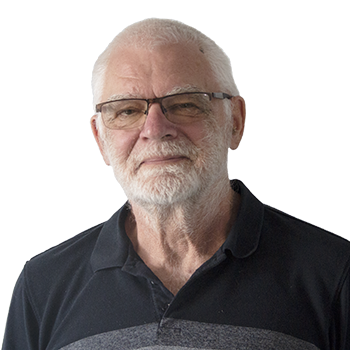My friend Blake died.
Blake was large, unkempt, unhealthy, opinionated, and occasionally rude. He was an atheist. His kidneys didn’t work. He loved people. His social skills were at the same time fascinating and frustrating. He was generous. He told wild and passionate stories. Blake carried a measure of English charm. His humour was usually off colour. When Blake mixed a drink for me in his home, we joked about pulling the curtains so no one could see a minister drinking with an agnostic. All of these were qualities, along with so many others, that made him important and colourful in my life.
One of Blake’s stories included being a young man with an engineering degree, looking for adventure. This would have been around 1970, and Blake’s huge curiosity compelled him to head off to South Africa to begin his working life. He went there, in his words, as a nominal Anglican, as a mostly uninvolved political conservative. Blake’s time there, in the days of brutal apartheid, brought him home some years later, in his words, a raging atheist, and a raving socialist.
What Blake saw as the reality of the church in South Africa was not only an excusing of racial intolerance, but rather the church embraced it, and wrote it into their understanding of God’s perfect will. Blake was so offended, so angered, that he vowed never to be part of a spirituality that was so subverted, so self serving. He remained true to that till his death.
Yet, in the years that I knew him, Blake visited inmates in prison. Blake was part of a Circle of Support and Accountability for released offenders. He supported the Food Bank. These activities are founded on Christian understandings of relating to your fellow humans.
How did that come about?
In his retirement years, Blake moved to a smaller rural town where housing was more affordable. There, Blake encountered Mennonites, something new to him. With his natural curiosity, Blake formed relationships, collected Mennonite history books. He observed neighbours and a son-in-law traveling to distant parts of the globe to do relief work. He learned about Mennonite Central Committee, a relief organization, sending financial and material support to places where folks suffered. He learned about sitting with First Nations folks, offering respect and dignity. He learned about restorative justice work, both in the prison and on the street.
Soon, Blake was reaching out. That included dropping awkwardly to his knees and leading me into a sweat lodge. That included accompanying us to a funeral service for Les, a friend that our Circle of Support and Accountability group had supported. Blake had never met Les, but because I had mentioned to him that Les’ widow was concerned that not many people would show up at the funeral of a sex offender, Blake was there, with all of his curiosity, all of his compassion.
Blake’s history didn’t allow him to give much respect to the evangelizing work of Christian ministry. He called it “sky piloting” and couldn’t seem to make the mental leap between “sky-piloting” and the support of marginalized folks. The South Africa experience, the passion and rage that he brought home, simply didn’t allow that. A frequent derisive term was “happy clappy Christians.” I giggled every time.
But when Blake encountered a community that was “being” in a way that his intellect and his compassion and his curiosity told him were life giving, he stepped forward. He could never acknowledge that these activities, these ways of offering compassion were spiritually rooted, but rather couched them in the language of practicality. “It’s a better use of my time and tax dollar to be supporting, encouraging, befriending.” Letters to politicians were frequent and sometimes bombastic.
There were many parts of Blake’s life that didn’t follow a Christian way of believing. Other parts did. I’m glad he was my friend. I’m glad he caused me to consider his motivations, and to rethink my own.
A plaque that hangs in my office speaks words I wish I had spoken to Blake, mostly to hear his loud indignation. “If something is true, no matter who says it, it is always from the Holy Spirit.”


